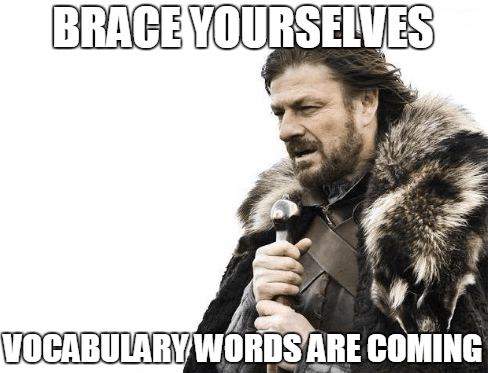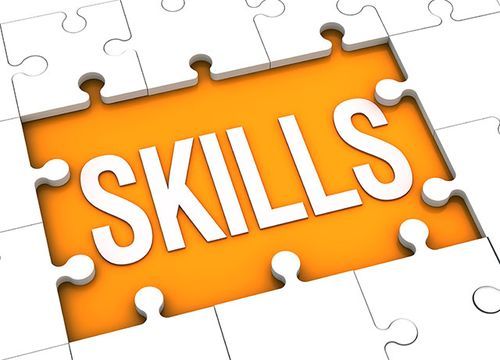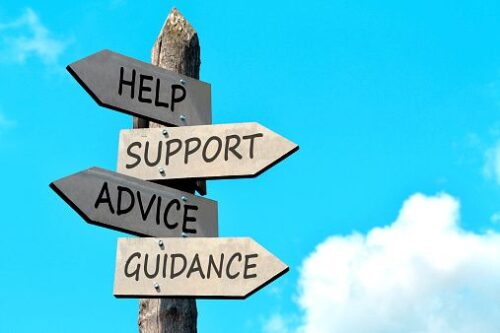Learn Basic English
…in 5 days !!
An intensive course on accelerated language learning.
presented by: Break Into English, an academy specialized in Break Into English

Imagine two different scenarios: In one, a teacher writes the word “cerrojo”; on the blackboard, and asks you to repeat it 100 times and remember it, along with another 30 words on which you will be examined next week. The other one is in a very hot day, in a bar in Seville, a grumpy waiter who you dislike pours you a hot beverage, and says “enjoy your carajillo”; while the drunk man next to you says “carajillo, carajillo, hahaha, carajillo”. And you say, “gracias por el carajillo”. Now, even though the word “carajillo” only appeared 5 times, you’re much more likely to remember that word for your lifetime than the word “cerrojo”; (even though you repeated it 20 times more).
The difference lies in the fact that in the first case, you’re trying to push a boring memory without getting many results… In the second case, the memory is strong because of all the links it has to other memories, emotions, social aspects… The more links a word has to different memories, the easier it is to access. The more vivid those memories are, the stronger the link. It is for that reason that just repeating the word 100 times in the same boring way won’t do much.
Learning enough English to be able to communicate efficiently is possible in 5 days. And if it takes longer, it is still faster than the traditional way. This is a very intensive approach, but then again, learning a language properly does take time. This little training will allow for a base from which to learn basic English or any other language for that matter. How much you want to learn is up to you!
Day 1- Learning Spelling, Sounds, “True Friends”
The importance of learning pronunciation first is key; how else are you going to learn words if you don’t hear them? Language was born oral and when you learned your mother tongue the first thing you did was learn to listen.
Understanding the sound of words has at least 3 components: hearing the correct sounds (which might take practice), producing them, knowing how they transcribe to the alphabet.
Once you are familiar with the sounds and can recognize words, we can start to notice that many of the words from the source and target language are similar; this is a good starting point because they’re easy to remember (we already have those words linked to plenty of emotions and actions in our own language).
What words are true friends will vary depending on your source language. But if both share a root there is a high chance of having many true friends, whereas if they are very distant, it is likely that there are fewer.
Day 2- Learn Basic English by Learning basic words
The all famous Pareto rule can be applied here: 80% of conversation comes from 20% of the words. Actually when it comes to language the abyss is even deeper, as relevant figures such as Tim Ferriss show.
What this means is that with only a few words you can cover a great variety of linguistic functions and be well on your way to learn basic English. For instance, if you record how many times a week you say the word “cauliflower” , unless you’re very healthy or follow some kind of diet or lifestyle, chances are you’ll say it once or twice. On the other hand, how many times a day do you say “left”, or “I need”? This might seem obvious, but many text books still teach how to say Great Uncle before how to say water. To this means, it is important to use Realia (real objects with a pedagogic purpose) and pictures rather than the translation. You could also put post-its on your household items. This is fairly relevant because the link between the source word and the target word is very weak, and many times it so happens that it is not an entirely accurate translation.
Another useful way to learn the words is to take advantage of the learning process itself. If you remember earlier, the word “carajillo” was much more memorable because of the way it was learned. This is actually more important than people think: It’s not just learning the word, the learning experience plays a role on how you recall the word. So, when learning it is important to use tricks to securely memorize words much faster and in a more entertaining way. For this purpose, mnemonics are very useful, and they will be useful further on. At this stage don’t worry too much about gender or plurals, even at the end, people can still understand you even if you misuse them.
Now… How many words are actually necessary? There are many opinions on this matter.
There is also a lot of debate on how many words you can learn in a day… Traditionally it was thought that you could only learn between 6-30 words in a session. That may be so… But you can fit many sessions in a day, even though performance decreases (but it is an intensive week…).
Anywhere from 200- 600 words should be enough. If it seems like a lot, you can view it in 2 different ways: if you truly can use a mnemonic technique successfully , it takes around 2-3 minutes to consolidate a word, which means you can learn 300 words in 10- 15 hours. Granted that seems a lot, but you can always split this day into two days.
As for the list of words itself, the internet is filled with different options. Just Google” 300 essential words” or something similar and you’ll find many different options to suit your needs.

Day 3- Learn basic sentences
This day is crucial, not only to learn certain language tools that can come very handy: “excuse me, where is the toilet?”, “Could I have a glass of water”, “I don’t understand”…. But also to implicitly learn the essential grammar. To this end, it is important to choose the phrases wisely. You should inform yourself of what are the most common grammatical structures.
Present simple, present perfect, past simple, past perfect, future simple…. You should construct sentences with already learnt words from the previous day. Even though it is repetitive, try to use the same nouns and verbs, for example: I am waiting, I have waited, I waited, I have been waiting….
Learn typical uses of language. “what time is it?” “how are you?” etc. Any travel guide is packed with them and they are very useful for a base level communication and extremely effective to learn basic English.
Day 4- Start practicing and living in the language
Watch films, listen to music, change your phone’s settings (if you feel comfortable with doing so), surround yourself with the language and try to think in it. Try having imaginary conversations and how you would say the things you normally say.
 At this stage (and the following), it is important to have some kind of contact, either with a real person or through Skype. Human interaction is what made language possible in the first place. When you learn basic English on your own, you can always complement your training with a few live sessions.
At this stage (and the following), it is important to have some kind of contact, either with a real person or through Skype. Human interaction is what made language possible in the first place. When you learn basic English on your own, you can always complement your training with a few live sessions.
If you have a Native teacher it’s the perfect moment to use him or her. Start reading easy pieces of text and maybe try drafting some kind of simple journal. The aim is to be fully immersed and to have no language distractions (avoid using your own language as much as possible).
You might feel lost, but that need for understanding will make you learn much faster. They say you have mastered a language when you can explain easily how to tie your shoelace. Maybe try to explain it in an easy way, but without getting too stressed. Remember that the process should not be tedious, or you will give up. Have as much fun as you can, knowing that you are going to have to work hard to achieve your goal.
Day 5 – Keep practicing
Either through teachers, colleagues or people in the street, you have to keep trying hard to communicate, that’s the way you can build on your basics and eventually (in the not too distant future) become fluent.
Many times you won’t know the word for an object, or how you should say something, but at least with your basics you can communicate simple things, and you can even ask how to say it from that base, just like little children do: “Why is the garbage-man wearing a uniform?” can be reduced to “Why is the man that takes rubbish dressed in those clothes?”. It is a good time to start reading everything you can in that language… and writing in it too! The more you practice the better you’ll get.
From here on out it’s up to you how far you can go.
Good luck, and learn basic English happily!








